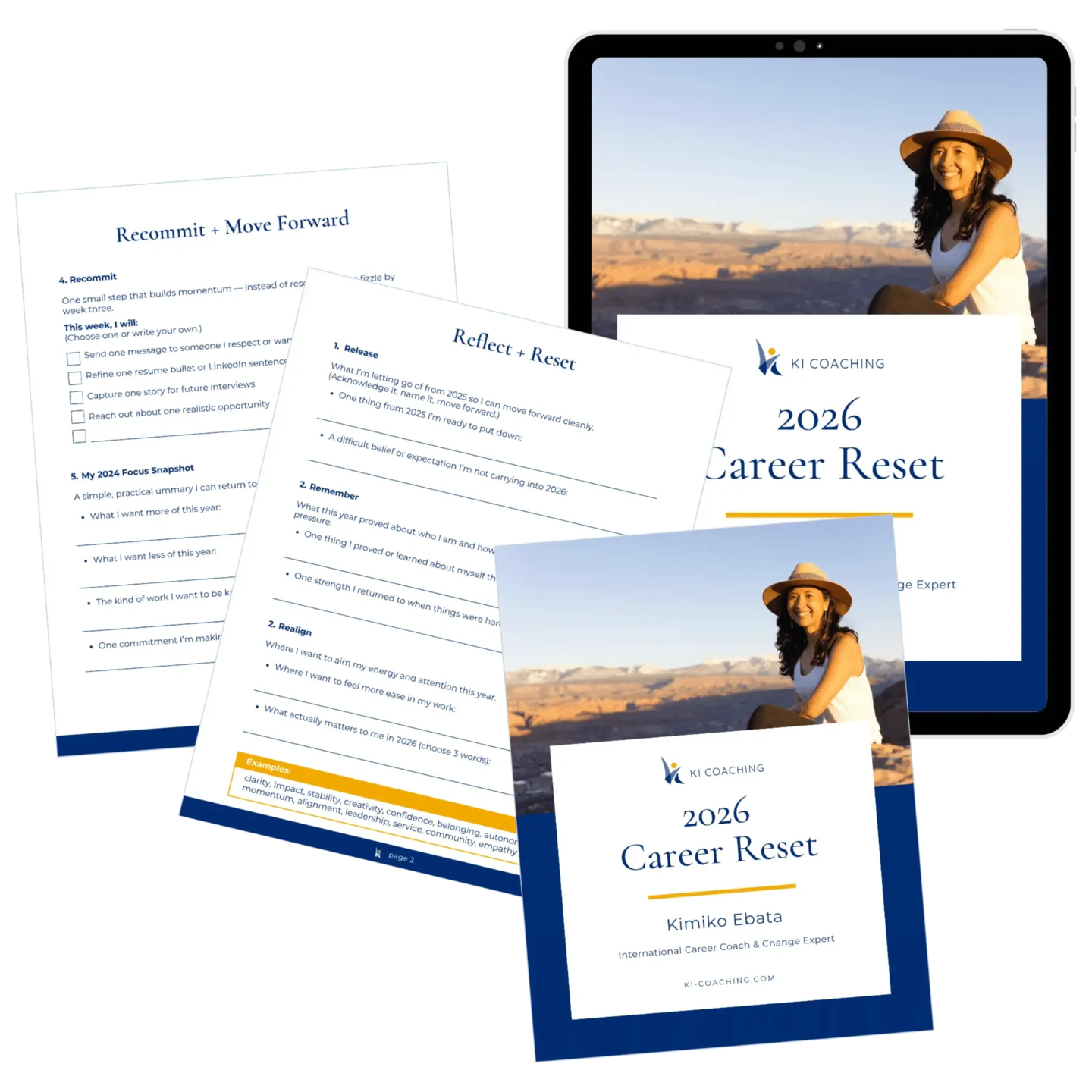Pinpoint Professional Profiles-Not Postings (BONUS: Informational Interview Questions Included)
Nov 21, 2021
One out of every 12 informational interviews, results in a job offer, while one out of every 200 resumes (some studies even put the number as high as 1,500 resumes) lead to a formal offer.
Bottom line: as a job-seeker or someone who is exploring their options, you should begin your search by pinpointing the professional profile that aligns with your interests, not the posting.
Here’s why. The benefits of informational interviews are endless for all parties. As a job-seeker, not only do they force you out of your comfort zone, but these conversations also boost your self-confidence, provide you with first-hand accounts of a particular field or company/organization, and give you insight on the jobs that could be your best fit. By joining a network, you are also engaging in communal behavior, and your contacts are helping to initiate new people into the conversation, a dynamic that can only be useful to the broader workforce in the long run.
If you are the type of person who has an instant aversion to “networking” with its images of slick, self-interested people manipulating others to get things they don’t deserve, know that this is natural, given the characters in films and novels that we encounter, as well as those that we have met in our own lives who reinforce this belief.
The good news is that there is another way to look at the forming of these strategic professional relationships. Instead of viewing networking as a form of hustle, you can choose to see this approach to relationship building as simply asking others for directions.
Here is how to prepare and make the most of an informational interview:
-
Prioritize: Before you begin to identify contacts and schedule calls, it is important to think about your approach for these conversations and the insight that you’re hoping to gain. How are you looking to share your story? What skills/experiences do you want to highlight based on your target contact list? What information are you seeking that cannot already be found online?
-
Prepare: You will be leading the conversation and always want to leave a lasting first impression, so it is always best to prepare 3-5 questions, while also leaving some flexibility for the conversation to flow organically. I’ve included a list of my favorite questions below for reference. Most of all, in these conversations, you are looking to cover topics that you cannot find through LinkedIn profiles, company websites, news articles etc. Potential conversation topics might include: work-life balance, how people work together, employee autonomy etc.
-
Perform Searches: When looking for the right people to speak with, it is important that you don’t just limit yourself to your professional networks. LinkedIn will always be the best place to start. Challenge yourself to double your list of contacts; it will be those second degree connections that will be gold for you. The more overlap an individual has with you (i.e. branch of service, alma mater, field of interest, hometown, extracurricular interests) the more likely they will be to respond favorably to your request. Be sure to expand your scope to include those from your personal circles as well. Think about that great person you met at yoga this week or when you volunteered at the food bank last month. The alumni association from your alma mater is another great place to start. You would be surprised how far even a more distant affiliation can take you. *Service members* here is a great tutorial on how to find others from your military branch.
-
Pitch Yourself: Reach out to a potential contact with a short, personalized note asking for 20-30 minutes of their time, while also demonstrating that you've reviewed their LinkedIn profile or professional bio. Be sure to share 1-3 sentences about where you are in your career and where you're looking to go. In your note, politely ask if you can "get their advice" or "pick their brain" about their work. You should also feel free to share your availability for the next few weeks to help move the process along.
-
Pay Attention: During the conversation, the most important thing you can do is to listen to the advice you’re being given, taking notes when needed. Within 24-48 hours of the meeting's conclusion, it is critical that you send a personalized hand-written note or email to the contact that you spoke with demonstrating your gratitude.
One conversation has the potential to provide you with invaluable insight into the right fit, additional contacts, and potentially even a new mentor. You never know what could happen when you let go of your pride and put that fear aside.
---
-
What does an average work day look like for you?
-
What are the skills needed to be most successful at this job or in this field?
-
What do you enjoy most about your work, and what do you find most challenging?
-
What skills and traits characterize the most successful employees at your organization?
-
My strengths are xyz. How might you see them fitting into the work of your organization and/or the broader field?
-
How might you describe a typical employee at your organization in three words?
-
What are current trends happening in this field?
-
What aspects of your role have surprised you? Why?
-
What are other organizations/companies in this field that you admire?
-
Is there anyone else in your network that would be helpful to speak with?
-
(For those who work at an organization of interest) If you were CEO for a day, what would be one change that you would implement?
-
(For those who work at an organization of interest) Can you tell me a time when there was disagreement on your team and how it was resolved?
-
(Provided all goes well and there seems to be interest from both parties) What steps would be involved in exploring how someone with my background might become a part of your organization?
OR
-
I have no idea if your workplace would have any interest in someone with my background, but would it make sense to start a conversation with whoever is in charge of hiring? By the way, who might that person be?
Subscribe for free professional tips and career advice
We hate SPAM. We will never sell your information, for any reason.


